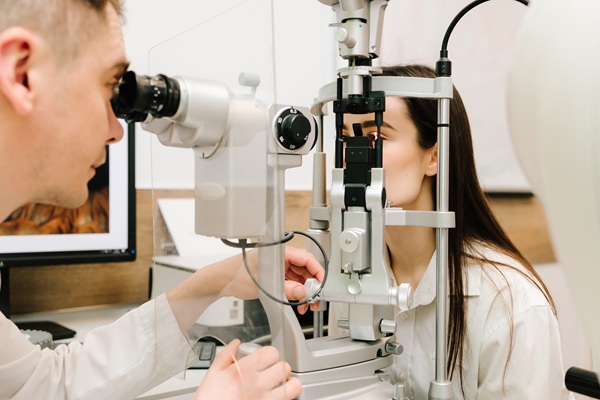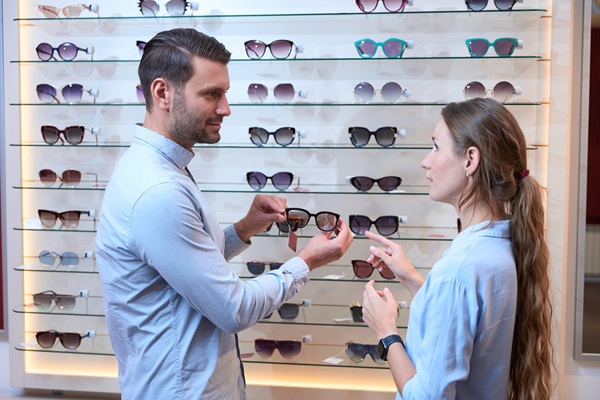5 Tips for First-Time Contact Lens Wearers

It is common for first-time contact lens wearers to feel some trepidation at the prospect of wearing them. If patients are careful and follow the correct wear and cleaning procedures, contact lenses are safe, comfortable and fun with very little risks.
Tips for contact lens wear
The following are five helpful tips for new contact lens wearers to know how to correctly care for their lenses.
1. Practice makes perfect
A lot of patients feel fearful about wearing contacts because of the worry that lenses may scratch their eyes or get stuck. Contacts cannot get stuck in the eye, and proper lens care reduces the chances of an eye scratch. It is important to relax and remember it takes practice to feel comfortable with the process of inserting and removing lenses. As long as hands are thoroughly washed before putting contacts in and taking them out, there is no danger in touching the eyes. It does not take long for it to become second nature and easy to do.
2. Follow proper hygiene
It is vital to always practice good hygiene when it comes to contact lens wear. This includes washing hands thoroughly with soap and water and drying them completely before inserting contacts, as well as cleaning the lenses with the appropriate contact lens cleaning solution. It is important to never reuse cleaning solution when storing contacts, and to use fresh solution every single time when taking lenses out. Patients should replace the lens case every one to three months to avoid bacteria growth and prevent infections.
3. Replace contacts when necessary
Patients should also be sure to change contact lenses per the optometrist’s recommendation. Wearing lenses longer than the recommended time period can cause eye irritations or infections. This is due to the contacts breaking down and the surface of the lenses holding in bacteria and protein.
4. Do not rinse contact lenses with water
Contact lenses should never be rinsed with water. Water contains microorganisms that can cause serious eye infections and lead to complications. Contacts also absorb water, which causes them to swell and results in the lenses no longer fitting on the eyes. It is important to never use water in contact lens cases. Swimming or showering while wearing contacts is also not recommended.
5. Listen to the optometrist
Patients need to be sure to wear contacts on the schedule the optometrist gives, as well as use the products recommended. By following the optometrist’s orders, patients can reduce the risk of complications or infections and keep the eyes healthy.
Conclusion
First-time lens wearers often feel nervous about wearing contacts. If patients are careful and get plenty of practice, as well as always use correct hygiene procedures, take care of the lenses and listen to the advice of an optometrist, the experience is fun and comfortable. Contacts are a great vision correction option that have very little risks when properly taken care of.
Request an appointment here: https://brighteyesny.com or call Bright Eyes Optometry at (914) 730-9574 for an appointment in our New Rochelle office.
Check out what others are saying about our services on Yelp: Read our Yelp reviews.
Recent Posts
Ophthalmologist and optometrists are two of the main eye care professionals. Both play an important part in helping you maintain the health and function of your eyes. However, while each type of eye doctor provides vision care, knowing the care you need can be confusing. Choosing the appropriate eye care provider depends on individual needs,…
Sunglasses have become a part of many people's wardrobes; however, they are also a great tool for protecting the eyes. Along with playing a large role in our daily lives, eyes are also sensitive to many things—sunlight being one of them. It is easy for one's eyes to sustain damage from direct sunlight exposure. Thankfully,…
A comprehensive eye exam does more than assess vision; it can also reveal early signs of various health conditions. Many systemic diseases affect the eyes before other symptoms appear, making regular exams essential to overall health care. Optometrists use advanced diagnostic techniques to detect conditions beyond vision problems, allowing for early intervention and treatment.Routine eye…
Cataracts are a common vision impairment that primarily affects older individuals, leading to clouded visions and, in some cases, blindness. Fortunately, cataract treatment provides effective solutions to restore sight and improve people's overall quality of life. Optometrists can use these advanced methods to improve precision, reduce recovery time, and lead to better treatment outcomes.Cataracts develop…


